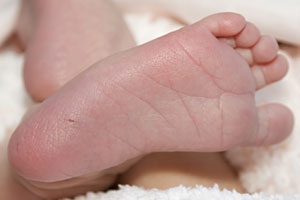
EMPOWERED
Empowering Mothers for Positive Outcomes With Education,
Recovery and Early Development
Neonatal Abstinence Syndrome (NAS)
During pregnancy, almost every substance in your blood can pass to your baby. This means the baby shares the medicine, drugs, nicotine, alcohol, marijuana and other substances you use while pregnancy. This can cause Neonatal Abstinence Syndrome (NAS) in your baby when you deliver. Substance use does not discriminate; it affects women across all racial and ethnic groups, all socioeconomic groups, and affects women in rural, urban, and suburban populations. The EMPOWERED program was developed to be a guide for new moms as they embark on this next chapter in their lives; the program was designed to help find the best options for women.
What is NAS?
- Neonatal Abstinence Syndrome (NAS) refers to the symptoms that babies may have when withdrawing from contact with opiates, stimulants, sedatives, alcohol and some antidepressants.
- Even if you use an opioid exactly as your health care provider tells you to, it may cause your baby to suffer with NAS.
- Heroin, morphine, codeine, oxycodone, OxyContin or Percocet, hydrocodone (Vicodin), meperidine, fentanyl (Demerol) are just some of the drugs that may cause NAS to occur in a baby.
What You Should Expect Now That You Are Expecting
At birth, the baby’s dependence on the substance continues. However, since the drug is no longer available, the baby’s central nervous system becomes overstimulated causing the symptoms of withdrawal like:

How Can You Help Your Baby?
 Be honest with the people who take care of you and your baby. They want to help you have a healthy baby.
Be honest with the people who take care of you and your baby. They want to help you have a healthy baby.
- Work with your providers to create the best plan of care and follow it to the best of your abilities.
- Continue taking the medications that have been prescribed for you by your healthcare provider. Although it may cause NAS in your new baby, it will be harder for you and your baby if you are not treated. Your baby can only thrive and develop if they have a healthy mom.
Community Resources
- Support groups
- Baby Cuddlers
- Baby’s Bounty
- St. Rose WIC
- Baby Basics
- Birth Center Tours
- Boot Camp for New Dads
- Breastfeeding Classes
- Infant CPR
- Lactation Support
- Prepared Childbirth
- Prepared Childbirth Express
- Follow the link to see a full list of classes and events: StRoseHospitals.org/classes.
Treatment Options
Click here to see a number of facilities who provide treatment options, both inpatient and outpatient, as well as groups who can mentor you as you move along this process.
Learn More
 EMPOWERED program participants can take a private tour of the Dignity Health facility closest to you. The EMPOWERED program works in collaboration with your healthcare specialists and other providers to support you and your baby.
EMPOWERED program participants can take a private tour of the Dignity Health facility closest to you. The EMPOWERED program works in collaboration with your healthcare specialists and other providers to support you and your baby.
- Do this for yourself in order to be better for your baby.
- Be stronger than your strongest excuse.
- You are never alone.
- With the right help, you will get better.
If you are looking for additional assistance or information, please call (702) 492-8593.
